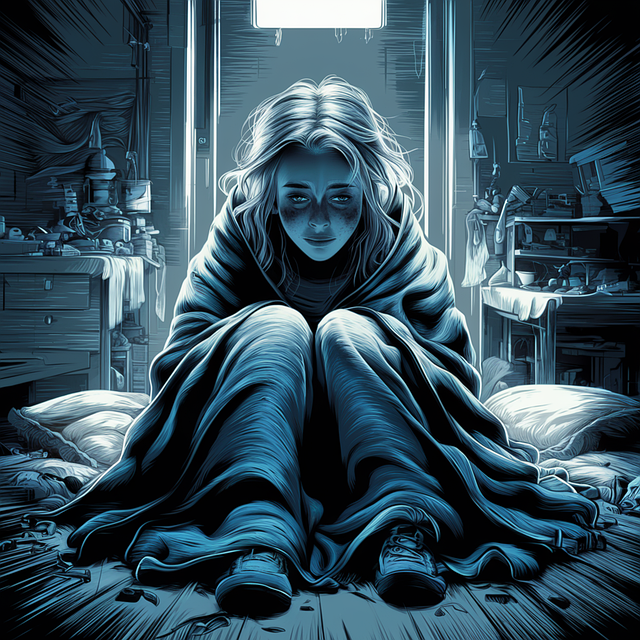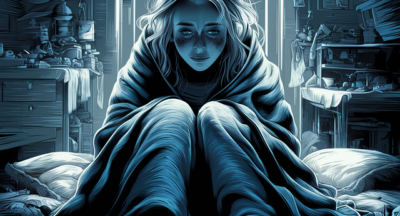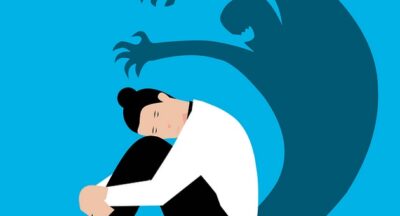
Carrying the weight of depression symptoms due to loneliness. How to break the isolation cycle post pandemic. Effective strategies that can help you get back into society and mingle with other human beings.
The COVID-19 pandemic reshaped social interactions, forcing many into prolonged isolation. As a result, countless individuals found themselves struggling with loneliness, which has contributed to depression symptoms such as persistent sadness, fatigue, loss of interest, and anxiety. The absence of regular human connection can deepen feelings of despair, making it even harder to reintegrate into society. However, breaking the cycle of isolation is essential for improving mental well-being. Here are effective strategies to help you reconnect with others and reclaim a fulfilling social life.
Understanding the Link Between Loneliness and Depression
Loneliness and depression are intricately connected, forming a cycle that can be difficult to break. While loneliness is the emotional distress caused by a lack of meaningful social connections, depression is a more pervasive mental health condition that affects mood, energy levels, and overall well-being. When left unaddressed, loneliness can contribute to the onset of depression, and in turn, depression can cause individuals to further isolate themselves, deepening feelings of loneliness.
How Loneliness Contributes to Depression
- Lack of Social Support – Human beings are inherently social creatures, and strong relationships play a crucial role in mental health. When someone lacks companionship, they may feel unimportant or disconnected, which can lead to feelings of sadness and hopelessness.
- Increased Negative Thinking – Without external perspectives from friends or family, lonely individuals may develop negative thought patterns. They may believe they are unworthy of companionship or assume others do not care about them, reinforcing depressive thoughts.
- Reduced Dopamine and Serotonin Levels – Social interaction stimulates neurotransmitters like dopamine and serotonin, which regulate mood and emotions. A lack of connection can disrupt this balance, making loneliness a biological trigger for depression.
- Loss of Purpose and Motivation – Many social activities provide a sense of purpose. When someone withdraws from social engagement, they may experience a decline in motivation, leading to further isolation and worsening depressive symptoms.
- Chronic Stress and Anxiety – Loneliness can increase cortisol levels, the stress hormone, which negatively impacts both mental and physical health. Persistent stress contributes to anxiety, making social situations even more intimidating for those already struggling.
How Depression Reinforces Loneliness
- Social Withdrawal – A key symptom of depression is the tendency to withdraw from social interactions. The more someone avoids socializing, the more disconnected they become, deepening their loneliness.
- Loss of Interest in Activities – Depression often causes people to lose interest in hobbies or events they once enjoyed, making it difficult to engage with others. This leads to fewer social opportunities and increased isolation.
- Feelings of Shame or Unworthiness – Those with depression may feel like a burden to others, leading them to avoid seeking help or initiating social interactions. They may believe that others won’t understand or that they don’t deserve companionship.
- Fatigue and Low Energy – The mental and physical exhaustion caused by depression can make even simple social activities feel overwhelming. As a result, individuals may avoid contact with friends and family, further exacerbating loneliness.
Strategies on breaking that vicious cycle: Steps Toward Healing
Reentering society after a long period of isolation can be daunting, but taking small, intentional steps can help ease the transition. Here are some practical ways to reconnect with the world and find happiness from within:
1. Start Small and Gradual
Reintegrating into social settings doesn’t mean jumping into large crowds immediately. Begin by engaging in low-pressure interactions, such as short conversations with neighbors, cashiers, or acquaintances. Small social interactions can help build confidence and make the idea of larger gatherings less intimidating.
2. Join Community Groups or Clubs
Finding a shared interest is a great way to make new connections. Consider joining a book club, art class, or fitness group. Many communities offer support groups for those struggling with loneliness and mental health challenges, providing a safe space to interact with others who understand your experience.
3. Reconnect with Old Friends and Family
Sometimes, loneliness persists because we have lost touch with those we once cared about. Reaching out to an old friend or a family member can rekindle relationships that provide comfort and support. A simple text or phone call can be the first step toward rebuilding social ties.
4. Volunteer Your Time
Volunteering provides a sense of purpose and a structured way to interact with others. Helping out at a local charity, animal shelter, or community center can create new connections while also giving you a reason to engage with the world in a meaningful way.
5. Seek Professional Support
If loneliness has contributed to severe depression, seeking help from a therapist or counselor is crucial. Cognitive-behavioral therapy (CBT) and other therapeutic approaches can help you navigate feelings of isolation, identify negative thought patterns, and develop coping mechanisms for social anxiety.
6. Use Technology to Your Advantage
While excessive screen time can contribute to isolation, technology can also be a useful tool for reconnecting with others. Virtual meetups, online support groups, and social media platforms can help bridge the gap until you feel comfortable engaging in face-to-face interactions.
7. Set Small, Achievable Social Goals
Instead of pressuring yourself to make drastic changes overnight, set small, realistic goals. This could be as simple as having one conversation per day, attending a local event, or inviting a friend for coffee. Celebrate each step as a victory to build momentum and confidence.
8. Engage in Physical Activity
Exercise has been shown to improve mood and reduce symptoms of depression. Activities such as yoga, group fitness classes, or even a daily walk in a public space can provide opportunities to be around others without the pressure of direct interaction.
Loneliness doesn’t have to lead to permanent depression—unless you let it. We have the power to control how external challenges affect us, both in the short and long term. We can either confront and overcome them or allow them to break us. Life presents us with choices, and it’s up to us to face the obstacles ahead.
Escaping the cycle of isolation takes time and effort, but the rewards are life-changing. Human connection is essential for emotional well-being, and by taking small, intentional steps, you can rediscover the fulfillment of meaningful relationships. You’re not alone—many are navigating post-pandemic loneliness alongside you. Be patient, seek support when needed, and move forward at your own pace.
With persistence and the right approach, you can rebuild your social life and experience the joy of true connection once again.

dr.dan
Related Posts
Nasty side effects of depression with long term romantic relationships. How is your chronic depression affect your existing relationship and finding solutions to avoid losing the people you care about the most? Here are some valid strategies to make things work.
Depression is not just an individual struggle; it has far-reaching impacts...
Carrying the weight of depression symptoms due to loneliness. How to break the isolation cycle post pandemic. Effective strategies that can help you get back into society and mingle with other human beings.
The COVID-19 pandemic reshaped social interactions, forcing many into...
The ugly friend of depression: How dietary changes can help you manage your depression symptom
Consuming appropriate food (eliminating refined sugar and heavy...
A proactive approach to anxiety: Antithesis of the big pharma (more reactive approach with drugs)
Anxiety has deep-rooted origins that stem from a combination of biological,...




